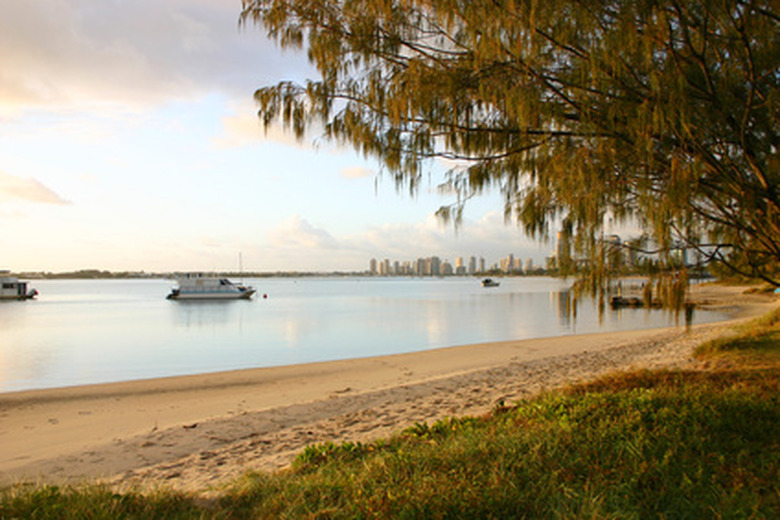How To Use Saltwater To Kill Weeds In St. Augustine Grass
Things Needed
- Tap water
- Tea kettle
- Saucepan, if desired
- Salt
- Funnel, if needed
- Hand spray bottle or small-mouthed pitcher
- Garden gloves, if needed
St. Augustine grass is one of the rare plants that is somewhat tolerant of saltwater. Most grasses and plants die when doused with saltwater, but St. Augustine grass is a tough ocean coastal plant that has adapted to levels of salt. That doesn't mean that saltwater is good for it, but it does open the door for weed-killing with saltwater concoctions, with lower risk to the grass. Combining salt with boiling water is an extremely effective weed killing method to get rid of weeds in St. Augustine grass.
Step 1
Fill a kettle with tap water and heat it until boiling. If you don't want to put salt in your kettle, you can transfer the boiling water to a saucepan before adding it, or simply boil it in the pan.
Step 2
Mix in about one cup of salt for every two cups of water. If your kettle holds six cups, add three cups of salt, for example.
- St. Augustine grass is one of the rare plants that is somewhat tolerant of saltwater.
- That doesn't mean that saltwater is good for it, but it does open the door for weed-killing with saltwater concoctions, with lower risk to the grass.
Step 3
Pour the mixture into a hand spray bottle or a small-mouthed pitcher to limit the amount that comes out at one time. If you're pouring from a saucepan into a spray bottle, a funnel will be helpful to minimize spilling.
Step 4
Spray or pour the hot saltwater as closely onto the unwanted weeds as you can. If using a spray bottle, slip on garden gloves to protect your hands from the heat. Even though your St. Augustine grass is salt-tolerant, try to keep the saltwater directly on the weeds, to avoid damage to the grass.
Step 5
Wait several hours to allow the salt to reach any deep roots, then pull up the weeds. They should be dehydrated and dying, so they should be easy to pull up by the roots.
- Pour the mixture into a hand spray bottle or a small-mouthed pitcher to limit the amount that comes out at one time.
- Even though your St. Augustine grass is salt-tolerant, try to keep the saltwater directly on the weeds, to avoid damage to the grass.
Tip
Spray or pour the saltwater on the weeds while it is still as hot as possible, as the heat also has a weed-killing effect, and this method won't be as effective if you let the water cool. You can repeat this process in a week or two weeks if weeds regrow. Getting them while they are young and tender is more effective.
